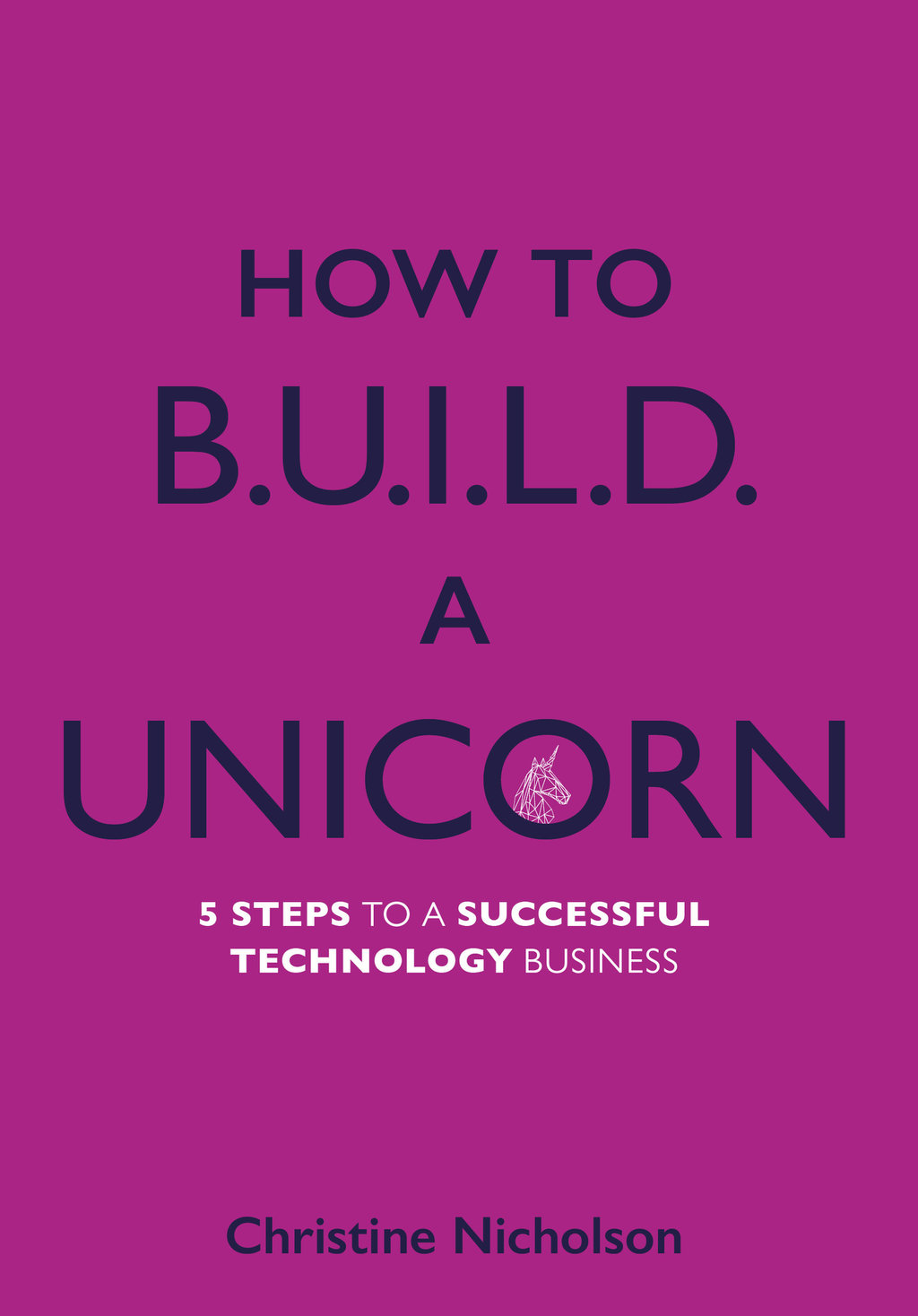Women in Leadership
“How to build a Unicorn”
Successful entrepreneur, UK Business Mentor of the year 2020 and author of, among others, How to Build a Unicorn, Christine Nicholson Business Mentor and Consultant at Nicholson Hall Consulting, speaks to Zoya Malik about her career journey and how becoming an accountant gave her the framework to focus her tactical interests with professional skills that are now guiding other business owners

Zoya Malik: In which sectors have you run businesses? Why did these appeal?
Christine Nicholson: Over my 30-plus-years career, I’ve worked in just about every sector from software development in St Peterburg, Russia, international logistics and shipping businesses through to running a zoo in the Middle East. I love working with technology, engineering and product businesses. Being logically driven, I get a great deal of satisfaction working with investors and creators. They bring the vision; I get it implemented. It’s a perfect partnership.
Christine Nicholson Business Mentor and Consultant at Nicholson Hall Consulting
ZM: You set up successful businesses? Why did you exit?
CN: Two of my previous technology clients were in dire straits when I joined them. In both cases the businesses were getting caught up in constantly inventing new things without knowing if there was a market for them. Both were successful turnarounds, having focused on developing a range of fully commercialised products.
ZM: Where do you get ideas for business set up? How do you evaluate a profitable business?
CN: My first exploration of entrepreneurship was in the healthcare sector just as formal regulations were established in the UK. Aging owner operators struggled through years of under-funding and looked to sell up and get out of the industry quickly. It was a matter of good timing. Bringing in regulation scared lots of owners, I thought it was a godsend. The new guidelines meant there was a ready-made rule book of standards. With lots of motivated sellers and an active market of clients, building this business was a no-brainer.
The biggest risks were getting the right staff, especially in an environment where most care businesses had a 25-40% staff turnover. The business plan was to acquire a number of businesses, implement an operational blueprint on each acquisition to maintain high standards and develop training to skill up a pool of motivated and well-cared-for staff. It was hard work and long hours but ultimately very rewarding. Investing in business processes, training and looking after staff meant the business became more profitable. Overall, the cost of recruitment was reduced because staff turnover was so low and attracting new staff became easier as the business reputation for training and development spread. Economies of scale became a factor after the first 2 acquisitions.
This was a great business but it wasn’t the sector I enjoyed the most. Running a 24-hour business is very demanding and I struggled with the classic business owner dilemma of working in the business when I should have been more focused on working on it. Instead, I burned out by doing both. My biggest lesson learned.
I’m not the ideas person in a business, which is why I like working with visionaries. When an inventor gets an idea that can be commercialised, I’m the one who gets the business built around it. One of the challenges for inventors have is they often don’t think about all of the commercial aspects of a business and build companies that are not financially viable. I have a suite of tools I use to test the viability of a business at different stages. In my book How to Build a Unicorn, I highlight the different levels of commercial appraisal specifically for technology companies but the same principal applies to all businesses. Businesses are a bit like cars. They look different on the outside, but they all use an internal combustion engine which has the same principals.
ZM: What does a career in mentoring mean to you? What drove you to it? How has your business and life experience helped others?
CN: When I was 14 when I was taken under the wing of a local youth leader, my first mentor. I left school at 16 and I’ve been fortunate enough to find career mentors in every job. I joined the WRNS (Royal Navy) at 19 and had five of the best years of my life, where I was mentored by people who saw more potential in me than I could imagine. After the Navy, my accounting career progressed because I was given the freedom to really stretch myself and get as much experience as possible.
Going through a £150m business disposal gave me the skills, knowledge and confidence to start my own business. Having mentors give me the support, guidance and most importantly the belief in myself has accelerated my career. Now I’m able to support other business owners with the same approach. I believe that business is hard enough without going it alone and businesses that operate more efficiently are more successful and lead to better economic results for stakeholders, communities and the world at large.

"How to build a unicorn" - book's cover. Credit: Christine Nicholson
ZM: How has your CIMA certification helped you in your career, business and guiding others? What was your CIMA experience?
CN: Not long after I left the WRNS, I joined a business with a graduate accounting programme. I didn’t qualify because I didn’t even have A ‘levels but I put together a proposal that gave me one year to show I could study and pass the exams. If I failed, I dropped out of the programme and repaid time and money. The Finance Director had faith in me and took a gamble, which paid off. I passed all exams with first time passes. I’m now completing my 4th post graduate level qualification and I love studying. But studying is most useful if it’s implemented.
Qualifying as an accountant allowed me to really explore the full range of business skills and experience to figure out that I enjoy solving big problems. CIMA gave me the ability to think and act strategically. It also inspired to me to start writing business books that focus on the business essentials in language that non-financial people understand. My 4th book is due out in July 2021.
ZM: How are you advising entrepreneurs in the industry with their succession planning? Can you give examples of firms you are mentoring through this process?
CN: In the UK there are over 250,000 mid-market businesses that rely on the business owner as the primary decision maker. Over 50% of business owners leave their businesses due to unplanned circumstances – leaving businesses struggling to keep going without their leaders. That’s a lot of businesses at risk if something happens to the shareholders. Succession planning is the first step of exit planning. Succession planning facilitates the development of the next generation of leaders in a business, and de-risks the business.
The more a business owner works in their business, the less the business is worth. Not a lot of business owners understand this. Owners, no matter what their back ground, all think about leaving a legacy and they think they have to be the one to lead it. If they let go, they are more likely to have a legacy to leave and their business will be the better for them getting out of the way.
ZM: How is tech helping women in the accounting industry and in accounting businesses?
CN: The accounting industry is rapidly changing with more software tools and other technology which allows book keeping and compliance to be done remotely from anywhere in the world. Accountants in practice are having to change the way they work and the services they offer as competition is now global. Those that don’t change will have businesses that simply fade away or get swallowed up by volume players looking buy up customer bases.
Effective use of technology is liberating women with accounting qualification. Being able to work remotely and more flexibly means that balancing work and family life is now easier than ever. Qualified accountants can collaborate more easily and work at higher levels in businesses, in practices and though part-time or self-employment. Portfolio careers mean that more senior roles are more easily accessible. Women qualify in the same way as their male colleagues and, more often, have better (much in-demand) soft skills than their male counterparts. With the right support and belief in themselves, they are stepping up into leadership roles and thriving at senior levels. The biggest barrier is their own belief and confidence. I was especially inspired recently by Baroness Karen Brady’s approach. She said she kicked down the board room door for herself, then wedged it open to allow other women to follow her. That’s exactly how I see myself, even though I didn’t have to kick the door down, some enlightened men opened it for me.
ZM: Who mentored and inspired you to go after your goals?
CN: My Mentor in the Wrens was Lt. Dick Tough (tough by name, tough by nature). He had a great sense of fun while pushing me to achieve my potential. He made me believe I could do anything I chose to commit to and is indirectly responsible for my becoming an accountant. Sadly, he is no longer alive, but his voice is still the one I hear when I have doubts about anything. My accounting mentors were Andrew Willson and Tim Maclure who both pushed me beyond what I thought were my limits. My first entrepreneur mentor was Colin Potter, who is indefatigable. He kept me focused on what’s important in the early stages of business and inspired me to start business mentoring.
ZM: What is your motto in life?
My motto in life is “Life is a service business – giving is living”